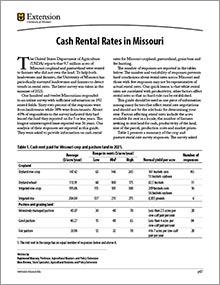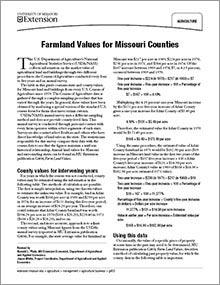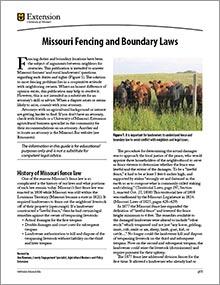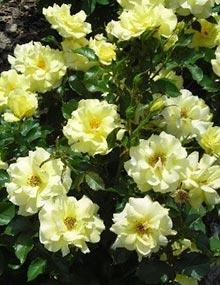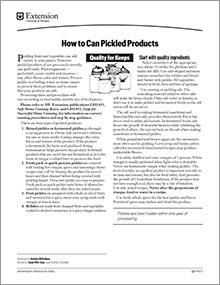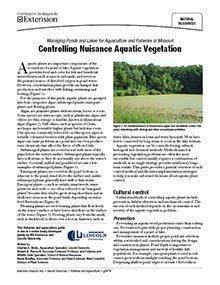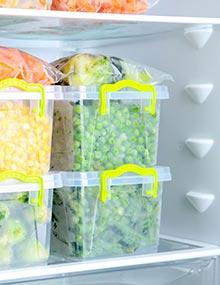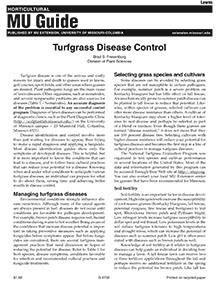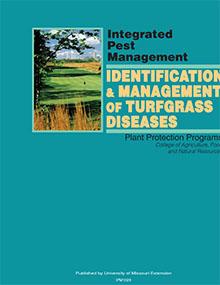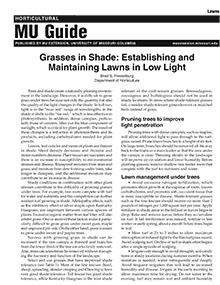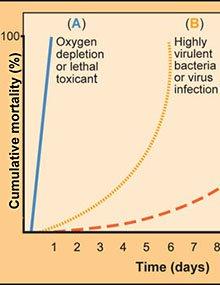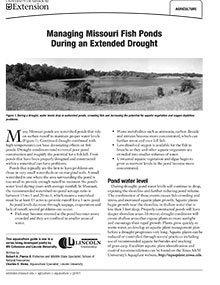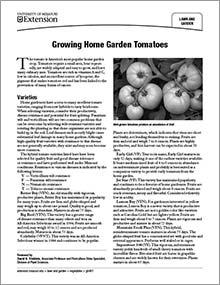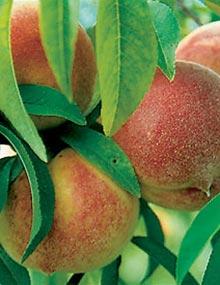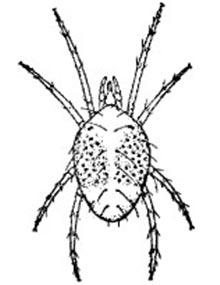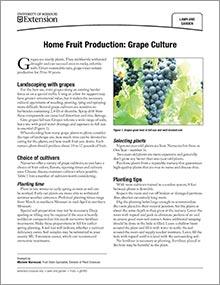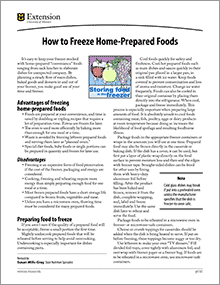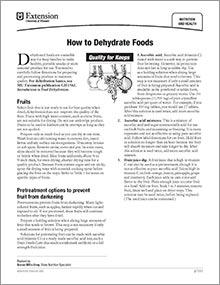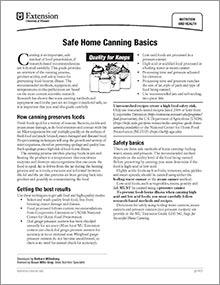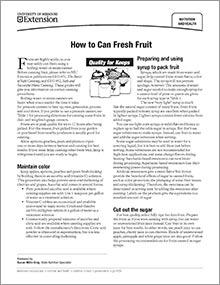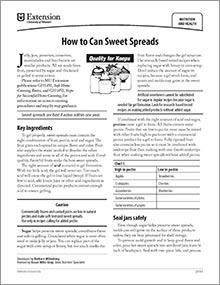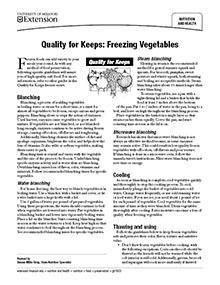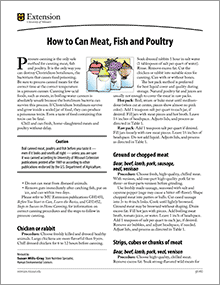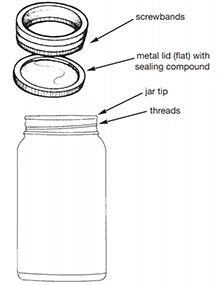The following publications might be of particular interest to people in Randolph County. For a complete list of MU Extension publications, visit the main Publications page.
Cash Rental Rates in Missouri
Revised
Updated with 2024 survey data, this guide provides average cash rental rates for Missouri cropland and pastureland, aiding informed lease decisions.
Missouri Farmland Values
Revised
Find farmland values for Missouri and its counties from USDA since 1959. Learn methods of estimating historical county values for years not reported.
Missouri Fencing and Boundary Laws
Reviewed
Learn about Missouri fencing and boundary laws, including duties, rights, and resolving disputes between landowners regarding fences and boundaries.
Roses: Selecting and Planting
Revised
Roses are well adapted to many different environmental conditions. They are useful as landscape plants and prized as cut flowers. Since they are the product of centuries of breeding and selection, many shapes, forms, and colors provide endless types to select from and use.
How to Can Pickled Products
Reviewed
Have cucumbers, will pickle. Select the best ingredients and containers. Get crisp pickles. Process for the correct amount of time in a boiling-water or steam canner. Can sauerkraut or pickle various vegetables. Learn how in this University of Missouri Ex
Custom Rates for Farm Services in Missouri
Revised
Get custom service rates for fieldwork, planting, fertilizer, crop harvesting, hauling and heavy equipment activities from a survey of farmers, agribusinesses and contractors.
Managing Ponds and Lakes for Aquaculture and Fisheries in Missouri: Controlling Nuisance Aquatic Vegetation
Reviewed
Learn to identify and control nuisance aquatic vegetation in Missouri ponds and lakes, ensuring optimal conditions for aquaculture and fisheries.
Turfgrass Disease Control
Revised
Identification and Management of Turfgrass Diseases
Reviewed
This publication is designed to be a useful reference for diagnosticians, turfgrass managers, industry representatives and others who want to learn how to diagnose and manage common turfgrass diseases caused by plant pathogenic fungi.
Grasses in Shade: Establishing and Maintaining Lawns in Low Light
Reviewed
Growing grass under trees is hard because the quality as well as the quantity of light changes in the shade. Learn what grass species and cultivars are shade-tolerant and how to manage a shady lawn in this University of Missouri Extension guide.
Collection and Submission of Samples for Fish-Kill Investigation and Toxic-Substance Analysis
Reviewed
Fish kills occur in natural and cultured populations. They can be due to disease, poor water quality or a toxic substance. Fish kills represent emergencies, and producers must be prepared for them in advance. Learn more in this guide.
Managing Missouri Fish Ponds During an Extended Drought
Reviewed
This aquaculture and fisheries guide is one in a series being developed jointly by MU Extension and Lincoln University.
Growing Home Garden Tomatoes
Revised
Tomatoes are a popular home garden crop. They require little area, bear repeatedly, are easy to grow and have many culinary uses. Learn about various varieties and get tips for growing tomatoes in this guide.
Home Fruit Production: Peach and Nectarine Culture
Revised
Peach and nectarine trees require considerable care, so cultivars must be carefully selected. Get tips for growing these fruits — including how many trees to plant, how to train and prune them, and how much to water them — in this guide.
Least-Toxic Control Methods to Manage Indoor Plant Pests
Reviewed
Learn safe and effective ways to manage indoor plant pests using natural, mechanical, and low-toxicity treatments that protect both plants and the environment
Home Fruit Production: Grape Culture
Reviewed
Grapes are sturdy plants that withstand drought and can succeed even in rocky, infertile soils. Grape vines can remain productive for 20 to 30 years. Learn how to landscape with grapes, from choosing cultivars to harvesting the fruit, in the University of
How to Dehydrate Foods
Revised
Dehydrated foods are a sensible way for busy families to make healthy, portable snacks or store seasonal produce for use. You need to carefully follow directions for preparing and pretreating produce to maintain quality.
Safe Home Canning Basics
Revised
Learn safe home canning techniques to preserve fruits, vegetables, meats, and more. Follow research-based methods to ensure food safety and quality.
How to Can Fresh Fruit
Reviewed
Did you know there's more than one way to can fresh fruit? Learn the options and what they mean for your final color and taste.
How to Can Sweet Spreads
Revised
Jelly, jam, preserves, conserves, marmalades and fruit butters are similar products. All are made from fruit, preserved by sugar and thickened or gelled to some extent.
How to Freeze Vegetables
Reviewed
From blanching, cooling and freezing to thawing and using, learn how to safely freeze vegetables — asparagus, beans, broccoli, cabbage, cauliflower, celery, corn, herbs, onions, peas, peppers, potatoes, tomatoes and more — in this MU Extension guide.
How to Can Meat, Fish and Poultry
Revised
Learn safe, research-based methods for canning meat, fish, and poultry using pressure canning to prevent foodborne illnesses.
